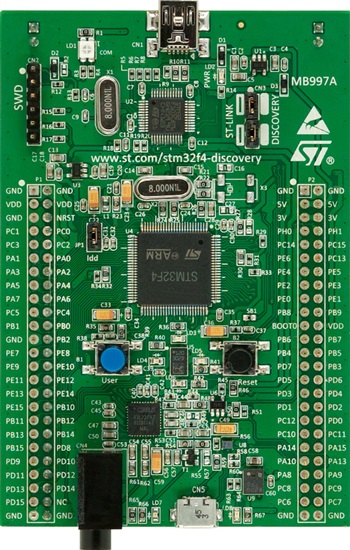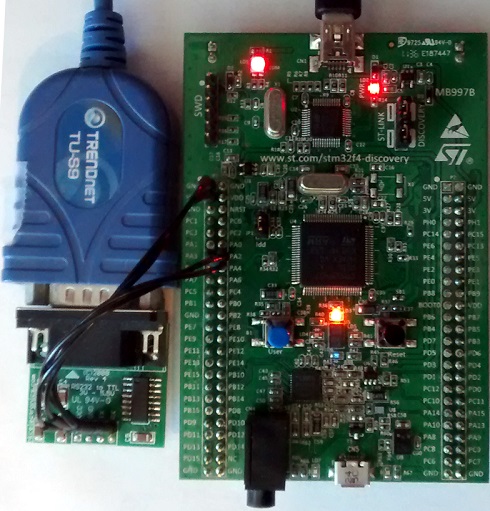The DPP example for embOS on STM32F4-Discovery board is located directory examples/embos/arm-cm/dpp_stm32f429-discovery.

The sub-directory iar contains the workspace and project file that you can open in IAR EWARM IDE.
After you load the DPP example into the STM32F4-Discovery board, the application should start blinking the 4 on-board LEDs. You can press the User button (blue) to PAUSE the philosophers for as long as the button is depressed. The philosophers resume dining when you release the User button. (In the PAUSED state the Table active object stops granting permissions to eat, so eventually all philosophers end in the "hungry" state.)
The DPP example for embOS on STM32F4-Discovery board provides the "Spy" build configuration, which outputs the QS (Quantum Spy) software tracing data through USART2. To get the data out of the board, you need to connect the TTL/RS232 converter as follows:
| STM32F4-Discovery | TTL/RS232 Converter |
|---|---|
| PA2 | TX |
| PA3 | RX (currently not used) |
| VDD | VCC |
| GND | GND |

The output is generated at 115200 baud rate.
Here is an example invocation of the QSPY host application to receive the QS data from STM32F4-Discovery:
qspy -cCOM1
The actual COM port number might be different on your Windows machine. Please check the Device Manager to find the COM port number.
Next: FreeRTOS examples